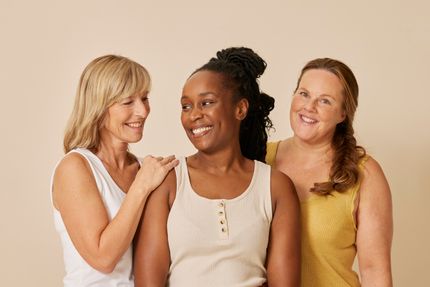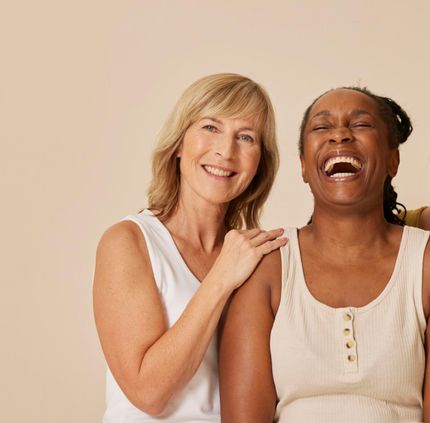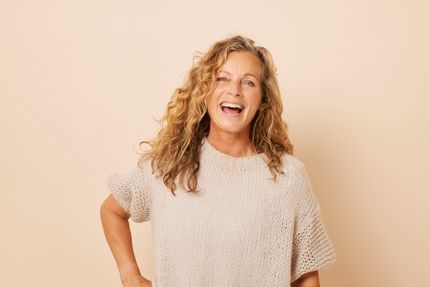

Daphne (age 44): “Most women stop having periods in their early fifties. For me, menopause came early.”
Daphne is married, mother of two teenagers, works as an infant teacher, and hit menopause at the age of 43. Reaching menopause prematurely was totally unexpected. “Initially, I assumed I was just tired and stressed. Dealing with a demanding job and raising two teenagers, no wonder I was barely holding it together.” Then her symptoms went from bad to worse.
“When I started having irregular periods, it dawned on me that it was menopause.”
Life went on
When you're too young for menopause it's just something that doesn't enter your mind. Until it's so blatantly obvious that you can no longer ignore it. “I was getting hot flashes and mood swings, my joints ached, and I felt exhausted all the time. Meanwhile, life went on. I was having a really rough time juggling all my different responsibilities – and failing at it most of the time.”
Of course, it's OK to drop the occasional ball, but it can eat at your self-esteem over time. “I felt I was unable to cope. I just wanted to lie in bed, pull a blanket over my head and never wake up. Even though I'm actually a happy-go-lucky person at heart. I didn't recognise myself and hated having these dark thoughts.”
“Our home was filled with turmoil”
While Daphne was struggling with her own woes, she was raising two teenagers whose hormones were on overdrive. “Of course, we clashed,” she says with a serious face.
“This was the worst part of it all. We're really close as a family, but our bond was put to the test during these years. We weren't exactly the Brady Bunch, let me put it that way.”

It would have been a lot easier if my menopause had not clashed with my children’s puberty.

What helped?
She confided in a friend about her concerns. Her friend advised her to talk to a professional. “I didn't want to take medication unless it was absolutely necessary. This was when she mentioned a menopause specialist who had helped her a lot.”
Daphne made an appointment and went to see her. She was very sincere and caring, which made her feel good talking to her. “She explained what menopause is, what my body was going through, and how supplements could be helpful. Together we made a plan to manage my symptoms without medication or hormones. Focusing on my body and health felt really good.”

I'm a positive person at heart, but I felt like I couldn't bear it.

So, what did this plan entail? “I made some improvements to my nutrition and lifestyle. For instance, I started eating more protein-rich foods and cut down on coffee. This felt better already! I was already going to the gym a few times a week, but I started doing strength training as well. My overall fitness has drastically improved, and I have less aches and pains in my body.”
Daphne has also started taking supplements. “We discovered there was an imbalance between omega-6 and omega-3 in my diet. So now I take omega-3 and a premium multivitamin complex every day.”
However, according to Daphne, the biggest difference wasn't exercise or nutrition, but getting enough rest. “Yoga and mindfulness have helped me to slow down. I don't get as caught up in my emotions anymore and I’m more patient. Our home is a lot happier now,” she smiles.
The magic word? Balance!
Is there a tip that you'd like to share? “The 80-20 rule has been a real eye-opener for me. It's brought so much more balance to my life. I eat nutritious, protein-rich foods 80 percent of the time. For the 20 percent part of the plan, I can eat whatever I want. This means it's OK to have M&Ms or popcorn with my boys when we're watching a film on Friday night.”
Are you experiencing menopausal problems?
There are all sorts of ways to alleviate your menopausal symptoms. Discover your options and take the first step today.

The story of











